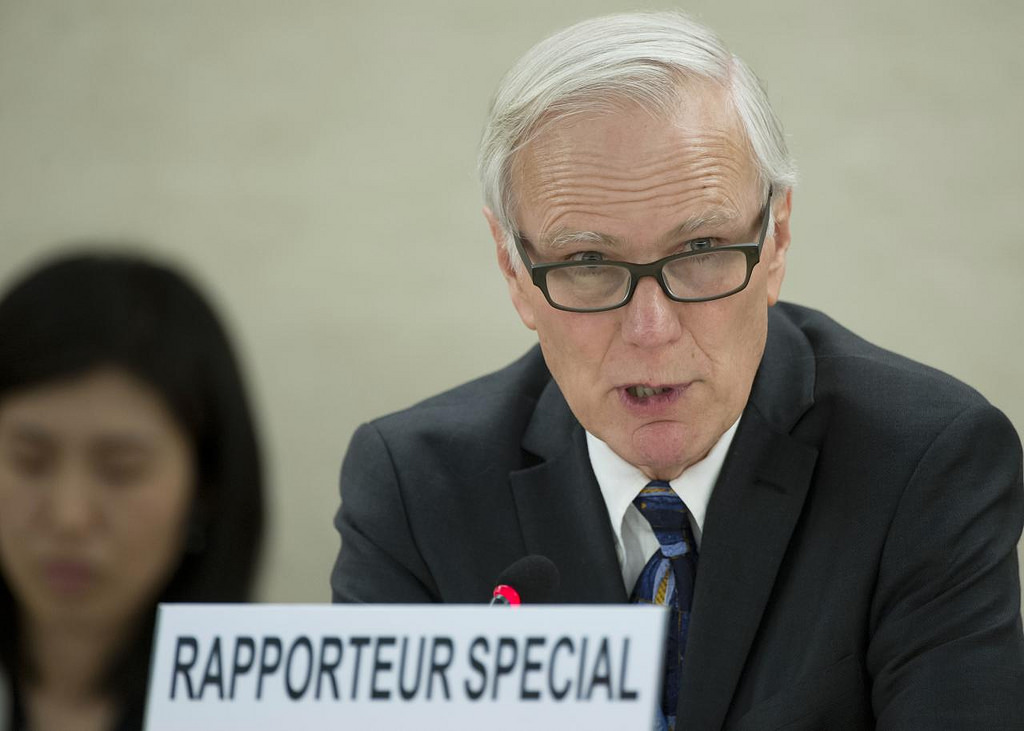UN Special Rapporteur on Extreme Poverty presented his country report on China this week, in addition to reports on visits to Mauritania and Saudi Arabia and a discussion of universal basic income. Unsurprisingly, despite Alston’s balanced tone, the Chinese delegation chose to attack the Rapporteur’s credibility, deny the practices he described, and hide behind tired claims that China is a ‘rule of law country’ and that the Rapporteur’s inquiry into the case of detained human rights lawyer Jiang Tianyong constituted ‘meddling in judicial sovereignty‘
The report itself raised serious concerns about the commitment to human rights in poverty alleviation, and focused particularly on the lack of effective accountability mechanisms across the legislative, executive and judicial branches of government. ISHR has previously highlighted key findings in the report.
ISHR advocate Sarah M Brooks noted that the Special Rapporteur clearly viewed civil society as key to making his work, and indeed the work of the UN, meaningful. And civil society groups in the room supported him, echoing his message for an end to the crackdown and the release of lawyer Jiang. ISHR’s statement is copied below.
‘The Special Rapporteur took a courageous and principled stand to call out China’s failures to protect human rights’, says Brooks. ‘It is downright shameful that no other country in the room could do the same.’
The delegation of Switzerland did raise concerns about non-cooperation, and asked the Special Rapporteur how the Council could ensure that, in the future, UN human rights experts could have unfettered access to civil society in their country visits.
For more information please contact Sarah M Brooks, at s.brooks[at]ishr.ch.
Photo credit: UN Photo/Jean-Marc Ferré
Statement at 35th session of the UN Human Rights Council
Item 3: Clustered Interactive Dialogue with the Special Rapporteur on Extreme Poverty and the Special Rapporteur on Internally Displaced Persons
(as delivered)
Thank you, Mr Vice-President.
ISHR wishes to thank Special Rapporteur Alston for his detailed reports.
We believe country visits can be powerful tools for national-level change when conducted in good faith and with full respect for the independence and expertise of the mandateholder. In particular, Mr Special Rapporteur we welcome your emphasis on the importance of inclusion and civil society participation in efforts to inform your work and implement your recommendations on the ground.
Unfortunately, we note that in your country report on China, you raise concerns on both fronts.
The progress China has made in poverty alleviation is remarkable. In the area of gender equality, the report is clear: to officials, it is simply ‘not a serious issue’ in China. Employment discrimination is a barrier to overcoming poverty for individuals with disabilities, yet the report implies you were only able to discuss this with state officials. Given that these challenges confronted a UN expert, how can others in the international community expect to constructively and credibly engage with China on these issues?
The report does not fully address concerns of rural and ethnic minority communities who face yawning gaps in protection of their economic, social and cultural rights. When development policies are implemented in minority areas, the affected communities are not consulted, and local grassroots organizations are often threatened or shut down if they engage in monitoring or assessment. There is little or no public information about the programmes or their impacts. Accurate, disaggregated, transparent data is a global best practice; classifying statistics as state secrets is not.
We reiterate your points that China should ensure rights can be protected in practice, by ending the current ‘law and order pincer movement’ that legalizes measures that limit the work of civil society. What advice would you share with NGOs to sustain their work despite these challenges?
For China to treat ESC rights as human rights – not ‘broad development goals’- they need to ensure legal recognition of ESC rights and their protection by independent courts. This would mean establishing an NHRI aligned with the Paris Principles, as recommended by seven States through the UPR and the Committee on ESC Rights.
And finally, it would mean not using arbitrary detention and enforced disappearance to silence dissent or criticism, of poverty-related policies or any other. Can you share any meaningful responses you received related to intimidation and reprisals against Chinese human rights defenders and their families, linked to your visit?




